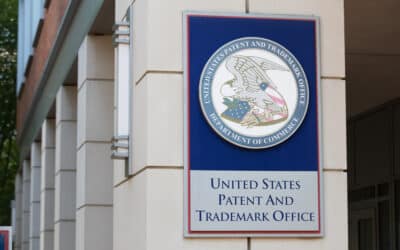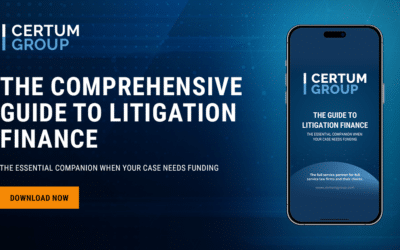Litigation funding has grown tremendously over the last 10 years and has naturally garnered significant interest from politicians and the public at large. As this awareness has increased, one of the more interesting consequent proposals has been the introduction of legislation requiring disclosure of litigation funding arrangements in court. While these statutes may help ease concerns about transparency in our judicial system, they also reflect a clear institutional preference for the plaintiff bar over third-party funders, which problematizes many of the core arguments against litigation funding as an abuse of the courts.
A statute sent to the Governor’s desk last month in Louisiana helps to clarify the contours of this reality. SB 355 generally requires disclosure of litigation funding by third-party litigation funders. In the statute, ‘third-party litigation funder’ is described consistent with a fairly uncontroversial definition of the practice:
“Third-party litigation funder” means any person or entity that provides funding intended to defray litigation expenses or the financial impact of a negative judgment related to a civil action and has the contractual right to receive or make any payment that is contingent on the outcome of an identified civil action by settlement, judgment, or otherwise ….₁
What is interesting, however, is that the statute then immediately explains that “[t]his term does not apply to: (a) The named parties, counsel of record, or law firm of record providing funding intended to defray litigation expenses related to the civil action.”₂ Similarly, it does not apply to “(c) Counsel of record, or law firm of record, or any referring counsel providing legal services on a contingency fee basis or to advance his or her client’s legal costs.”₃ In other words, the statute requires that litigation funders disclose their participation in a suit, except where that funding is provided by a plaintiff lawyer taking the case on contingency.
A basic example helps to concretize the issue. Imagine you are a small mom-and-pop business that has a fully executed, bulletproof contract to deliver 100 widgets for $100,000 each, representing a total contractual value of $10 million. After entering into the contract, but before performance begins, the counterparty breaches the agreement and enters into a similar contract with a cheaper supplier. The mom-and-pop business almost certainly does not have the money to pay a lawyer hundreds of dollars an hour to litigate the matter, let alone the rack rates of high-end trial lawyers who charge thousands of dollars an hour. But they do have a legal claim that is facially worth $10 million. And they can use that asset to seek justice.
One way to do that is to go to a commercial plaintiff lawyer and see if they will take the case on contingency, which is just another way of saying they will invest their money (via their unbilled time) in a matter. The lawyer will look at the file, do a basic high-level analysis, and ballpark the damages range that they think they can secure through litigation. If the mom-and-pop business and the lawyer are able to come to acceptable terms regarding the lawyer’s compensation for her investment in the case, they execute a retainer. This practice is widespread, uncontroversial, and makes a lot of sense as an efficient way to allow access to our court system. And it’s functionally the exact same thing as litigation finance.
Now, there is another way that the mom-and-pop business can accomplish their goal. They could go to a litigation funder, have the funder conduct the exact same analysis as the contingency fee plaintiff lawyer, and then enter an agreement that provides for funding in exchange for participation in the ultimate recovery. This process allows the plaintiff to retain the lawyer they want (and not just the lawyer willing to do the case on contingency.)
Tellingly, carve-outs favoring plaintiff lawyers are not unique to this statute or to Louisiana. For example, a 2024 litigation funding bill in Indiana explicitly stated that the term “Commercial litigation financing agreement”:
[d]oes not include a civil proceeding advance payment transaction, [or] an agreement between an attorney and a client for the attorney to provide legal services on a contingency fee basis or to advance the client’s legal costs….₄
Similarly, a new litigation finance bill in West Virginia states “litigation financing transaction”:
[d]oes not include: (i) Legal services provided on a contingency fee basis, or advanced legal costs, where such services or costs are provided to or on behalf of a consumer by an attorney representing the consumer in the dispute and in accordance with the West Virginia Rules of Professional Conduct.₅
As a practical matter, all of these laws place onerous requirements and restrictions on litigation funders—except when they are plaintiff lawyers.
Returning to where we began, opponents of litigation funding primarily argue that it leads to a proliferation of meritless litigation by entrepreneurial lawyers. It is incredibly difficult to square that contention with the consistent decision of state legislatures to repeatedly carve out plaintiff lawyers—the original funders in the market—from the recent wave of litigation funding legislation. And I have been unable to find a satisfactory explanation for this incongruity. To me, the preference for one group of funders over another suggests that, at least some, of the argument surrounding litigation funding is animated more by a desire to pick economic winners and losers than substantive policy concerns. In any event, anyone interested in litigation funding policy should continue to monitor the treatment of contingency fee plaintiff lawyers in this evolving statutory environment, as it will undoubtedly continue to shed light on the motivations of the stakeholders involved.
₁ https://legiscan.com/LA/text/SB355/2024
₂ https://legiscan.com/LA/text/SB355/2024
₃ https://legiscan.com/LA/text/SB355/2024
₄ https://iga.in.gov/pdf-documents/123/2024/house/bills/HB1160/HB1160.05.ENRS.pdf
₅ https://www.wvlegislature.gov/Bill_Text_HTML/2024_SESSIONS/RS/bills/sb850%20sub1%20enr.pdf






